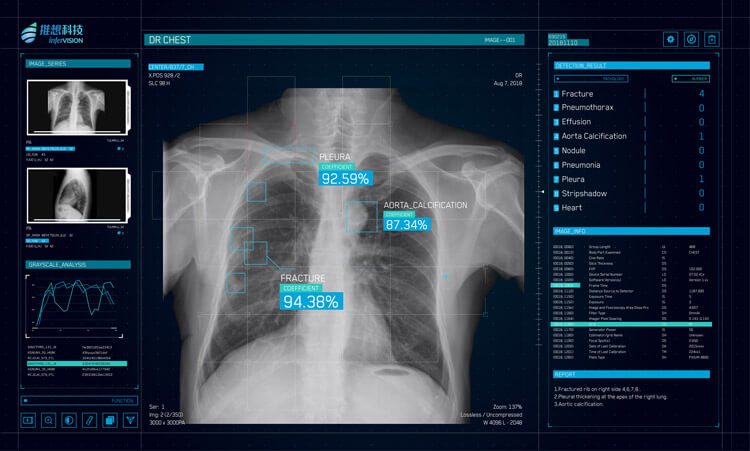China's Infervision, a 3-year-old startup headquartered in Beijing, has helped 280 hospitals across the world in detecting cancer cells through imaging analysis powered by artificial intelligence.
The company, founded in 2015, claimed to be the first high-tech healthcare company in Asia that specialized in the medical imaging powered by AI. It had already raised $70 million in funding from investors that included Sequoia Capital China.
Now, it announced an additional product range that could detect four different diseases with just one digital imaging of the chest. It also launched a new product that can be used to determine a patient's condition during emergencies like stroke and bone fractures.
The new AI product line up, introduced during the Radiological Society of North America conference in Chicago, is aimed at achieving efficiency for medical tasks done by a radiologist for them to help doctors deliver accurate analysis faster.
With their products, the company was able to improve the accuracy rate of doctor's analysis by 20 percent, Chen Kuan, founder and chief executive officer for Infervision, told TechCrunch.
China is aggressively developing its AI capacity because it can make health care accessible even to its citizens living in far-flung provinces.
The aggressive AI integration into its medical industry could also close the gap between its people in the rural areas and urban regions, Jim Wang, CEO of health care conglomerate NovaVision Group, said at CNBC's East Tech West conference held in November.
Wang explained that there were insufficient medical sources deployed equally among the residents in provinces in the country for the 30 to 40 years. Through rapid AI integration into the medical field, this "inequality" could be addressed.
NovaVision Group, with expertise in eye care technology, for instance, could train AI systems to support doctors deployed in far places across China. With this direction, however, the challenge for AI innovators with the private sectors is how to penetrate the conservative culture across the country, Wang said.
Around the world, the artificial intelligence market for the healthcare industry is expected to grow at a 40 percent rate until 2021, according to an estimate made by the Frost & Sullivan.
Separately, Allied Market Research said the artificial intelligence healthcare market could balloon from $600 million to $6 billion industry by 2023.
Accenture, meanwhile, focused on the industry with regard to the health AI applications used in the United States. According to its analysis, AI-powered equipment could save the U.S. healthcare economy as much as $150 billion annually by 2026.






